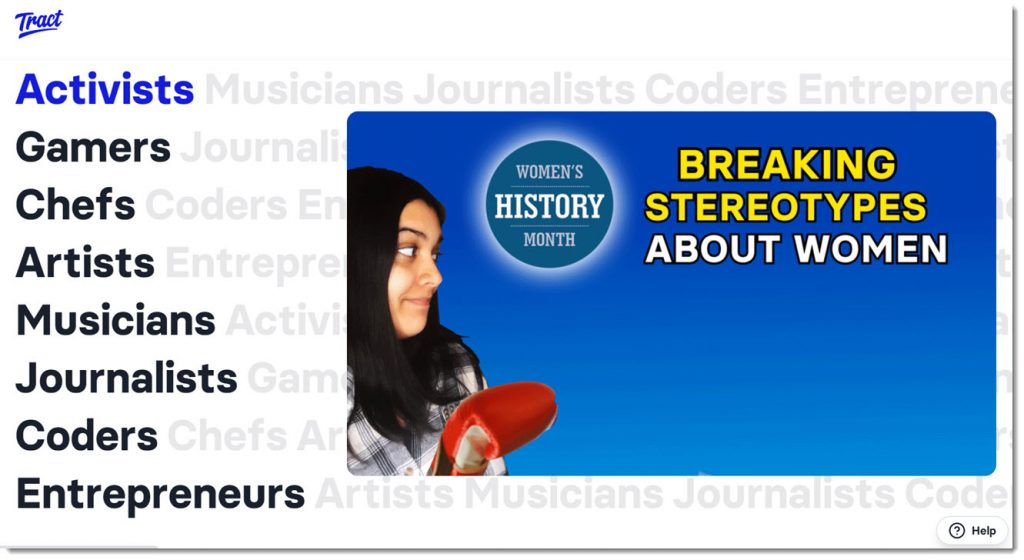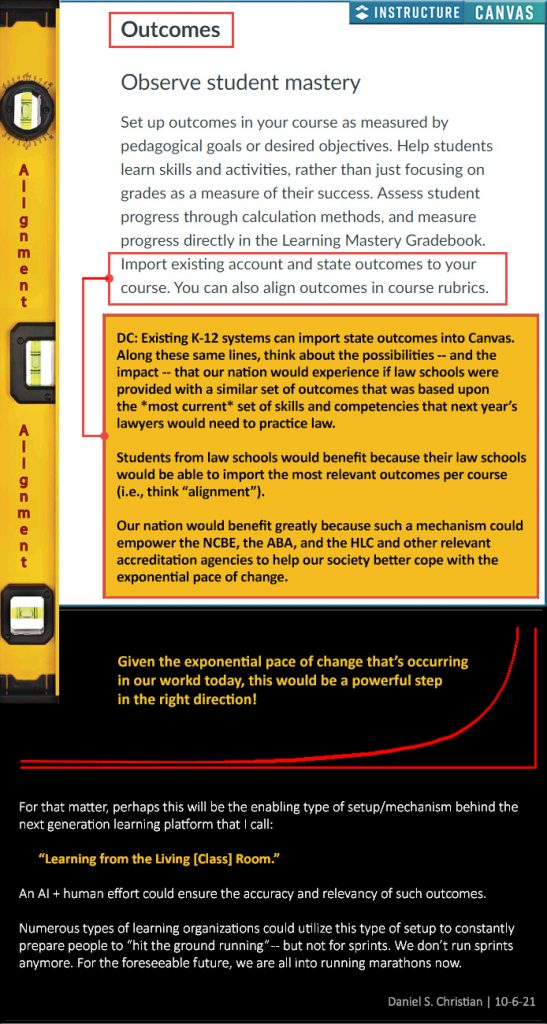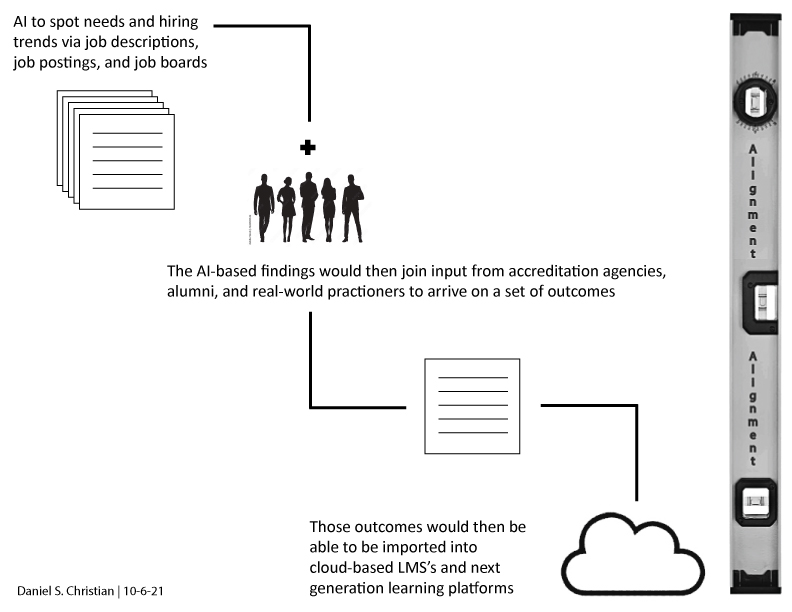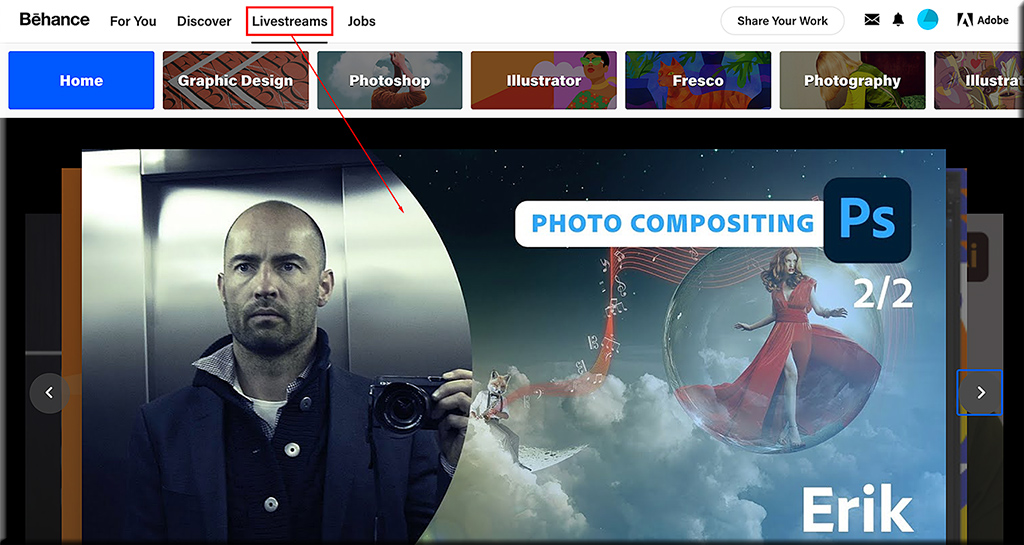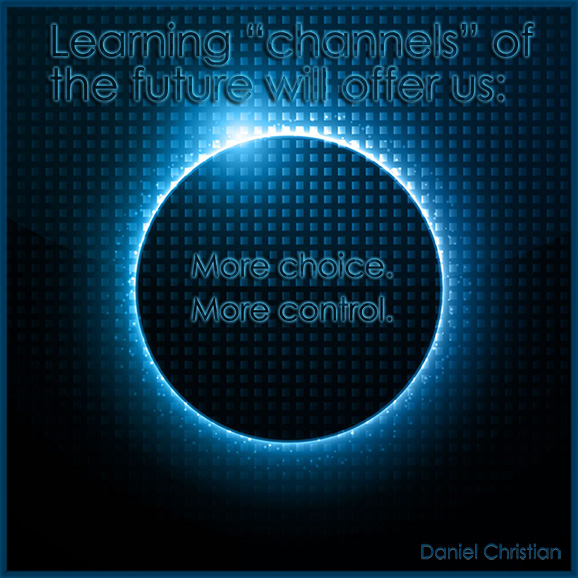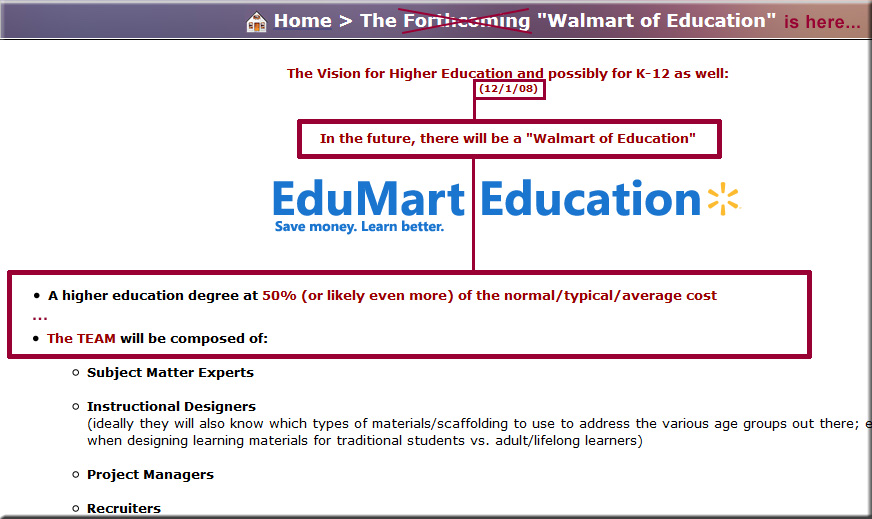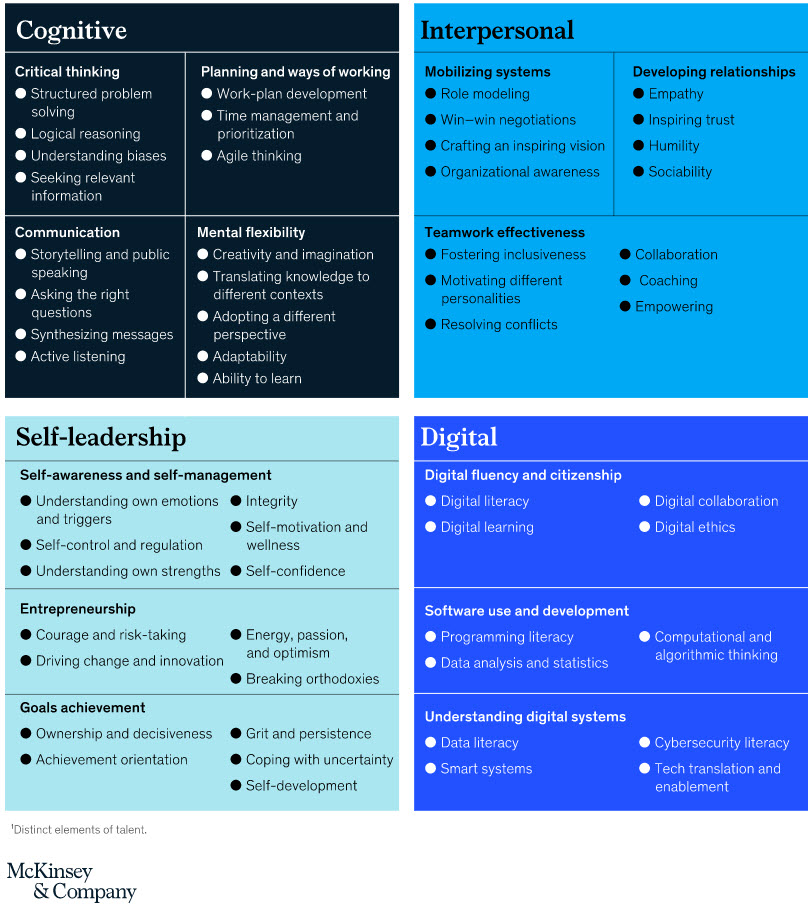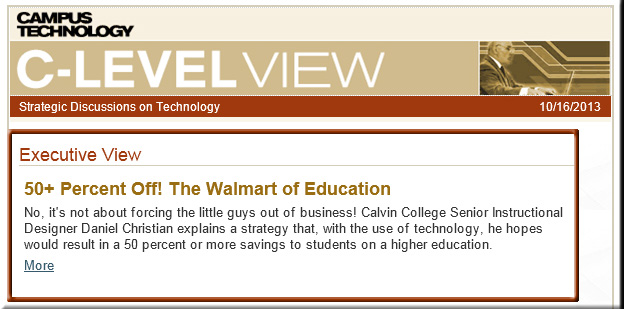Higher Education Needs to Move Toward Mass-Personalization — from fierceeducation.com by Susan Fourtané
Excerpt:
Every industry, from health sciences to marketing to manufacturing, is using Artificial Intelligence (AI) to facilitate the delivery of mass-personalization, yet education has been slow in its adoption. These smart systems create personalized solutions targeted to meet the unique needs of every individual.
Artificial Intelligence-based technologies have the potential of serving as tools for educators to provide personalized learning. However, for mass-personalization to work, institutions first need to align their leadership. In his feature session What Is It Going to Take to Move from Mass-Production to Mass-Personalization?, during the recent Online Learning Consortium virtual event, Dale Johnson, Director of Digital Innovation at Arizona State University, addressed the issue of mass personalization in higher education.
Johnson reinforced the idea that with mass-personalization professors can deliver the right lesson to the right student at the right time.
…
Mass-personalization software does not replace the professor. It makes the professor better, more focused on the students.









